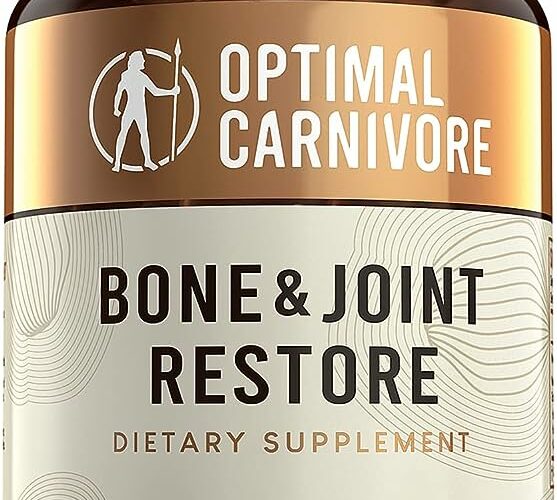Nutritional support plays a vital role in promoting joint and bone health. A balanced diet rich in essential nutrients like calcium, vitamin d, omega-3 fatty acids, and antioxidants can help maintain strong and healthy joints and bones.
Proper nutrition supports the production of collagen and other structural proteins, reduces inflammation, strengthens bones, and promotes overall joint health. Consuming a variety of fruits, vegetables, whole grains, lean proteins, and dairy products can provide the necessary nutrients to support joint and bone health.
Additionally, staying hydrated and maintaining a healthy weight also contribute to optimum joint and bone health.

Credit: www.consumerlab.com
The Importance Of Joint And Bone Health
Good joint and bone health is crucial for maintaining an active and fulfilling life. Many people suffer from common issues such as arthritis and osteoporosis, which can greatly impact daily activities. Poor joint health can lead to pain, stiffness, and limited range of motion, making simple tasks like walking or even reaching for objects difficult.
Similarly, weak bones can increase the risk of fractures and limit mobility. To support joint and bone health, it is important to follow a balanced diet that includes nutrients like calcium, vitamin d, and omega-3 fatty acids. These components help promote bone density, reduce inflammation, and support overall joint health.
By prioritizing nutrition, we can actively prevent and manage joint and bone health issues, enabling us to lead active and fulfilling lives.
Nutritional Support For Joint And Bone Health
Proper nutrition plays a crucial role in maintaining joint and bone health. Including essential nutrients in our diet is important for building and strengthening bones and supporting joint function. Calcium, found in dairy products and leafy green vegetables, helps in the formation of strong bones.
Vitamin d is necessary for the absorption of calcium and can be obtained through exposure to sunlight or dietary sources like fatty fish. Omega-3 fatty acids, present in fish like salmon and sardines, have anti-inflammatory properties that can benefit joint health.
Vitamin c, found in citrus fruits and berries, is essential for collagen synthesis, which is important for joint and bone strength. Additionally, incorporating a variety of fruits and vegetables rich in antioxidants can help reduce inflammation and support overall joint health.
Overall, a well-balanced diet with these essential nutrients is essential for maintaining healthy joints and bones.
Exercise And Lifestyle Practices For Joint And Bone Health
Regular exercise plays a crucial role in maintaining the health of our joints and bones. By engaging in physical activities, we can keep our joints mobile and improve their flexibility. Exercise also helps in strengthening the muscles around the joints, providing them with adequate support.
Weight-bearing exercises, such as walking or jogging, promote bone health by increasing bone density. Additionally, resistance training exercises are beneficial for building strong muscles and protecting the joints. Apart from exercise, making certain lifestyle changes can also support joint and bone strength.
Consuming a balanced diet rich in nutrients like calcium, vitamin d, and protein is essential for maintaining healthy bones. Avoiding smoking and excessive alcohol consumption can further contribute to better joint and bone health.
Conclusion
A healthy diet plays a crucial role in supporting joint and bone health. Incorporating nutrient-rich foods can provide essential vitamins and minerals that contribute to strong bones and flexible joints. Calcium is vital for bone strength, and can be found in dairy products, leafy green vegetables, and fortified foods.
Vitamin d helps in the absorption of calcium and is found in fatty fish, egg yolks, and sunlight exposure. Omega-3 fatty acids, typically found in fish, nuts, and seeds, can reduce joint inflammation and promote joint health. Antioxidants, present in fruits and vegetables, combat free radicals that can damage bone and joint tissues.
In addition, maintaining a healthy weight can help alleviate stress on joints and bones. By focusing on a balanced diet rich in these nutrients, you can support your joint and bone health, promoting overall well-being.





